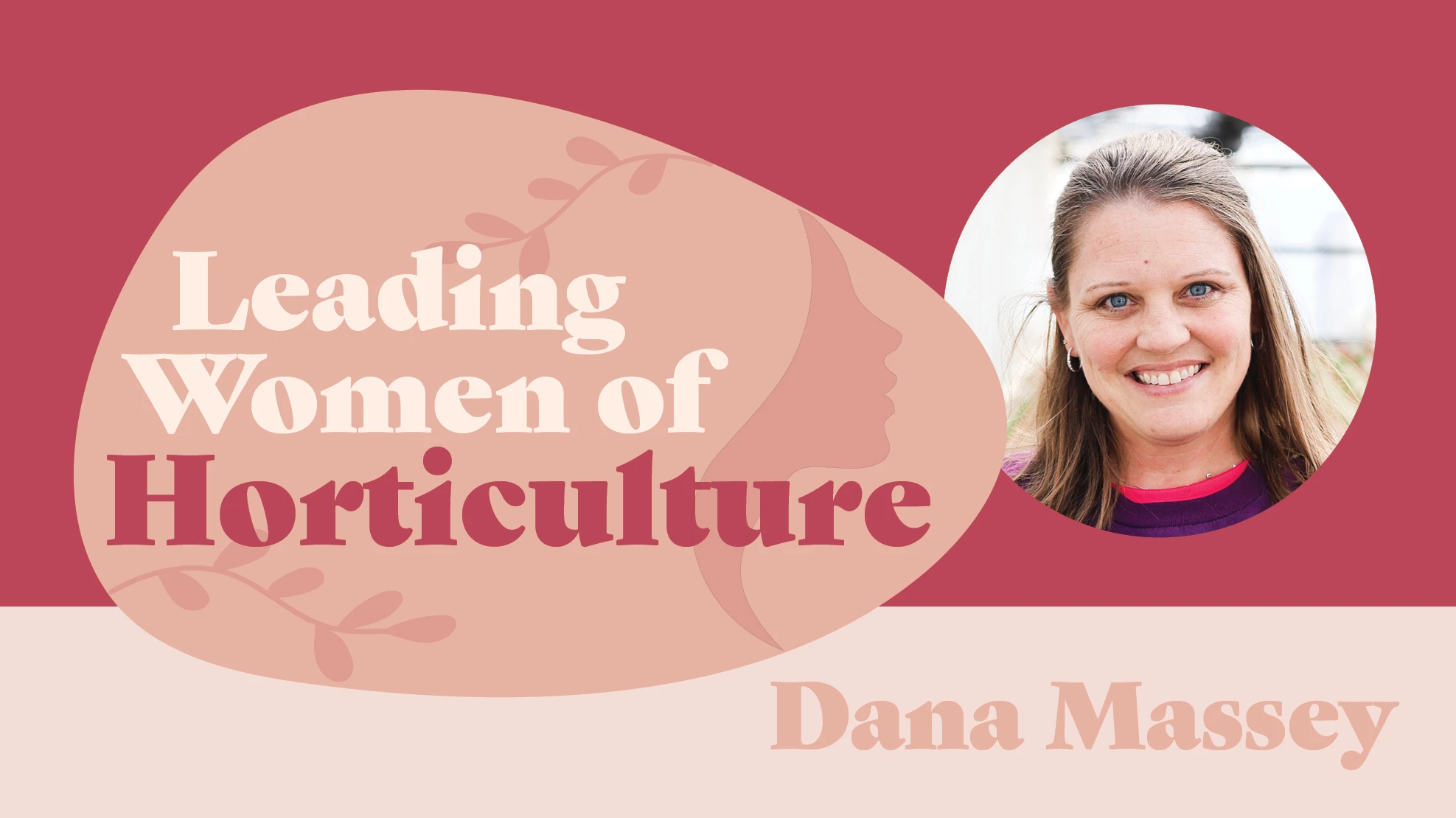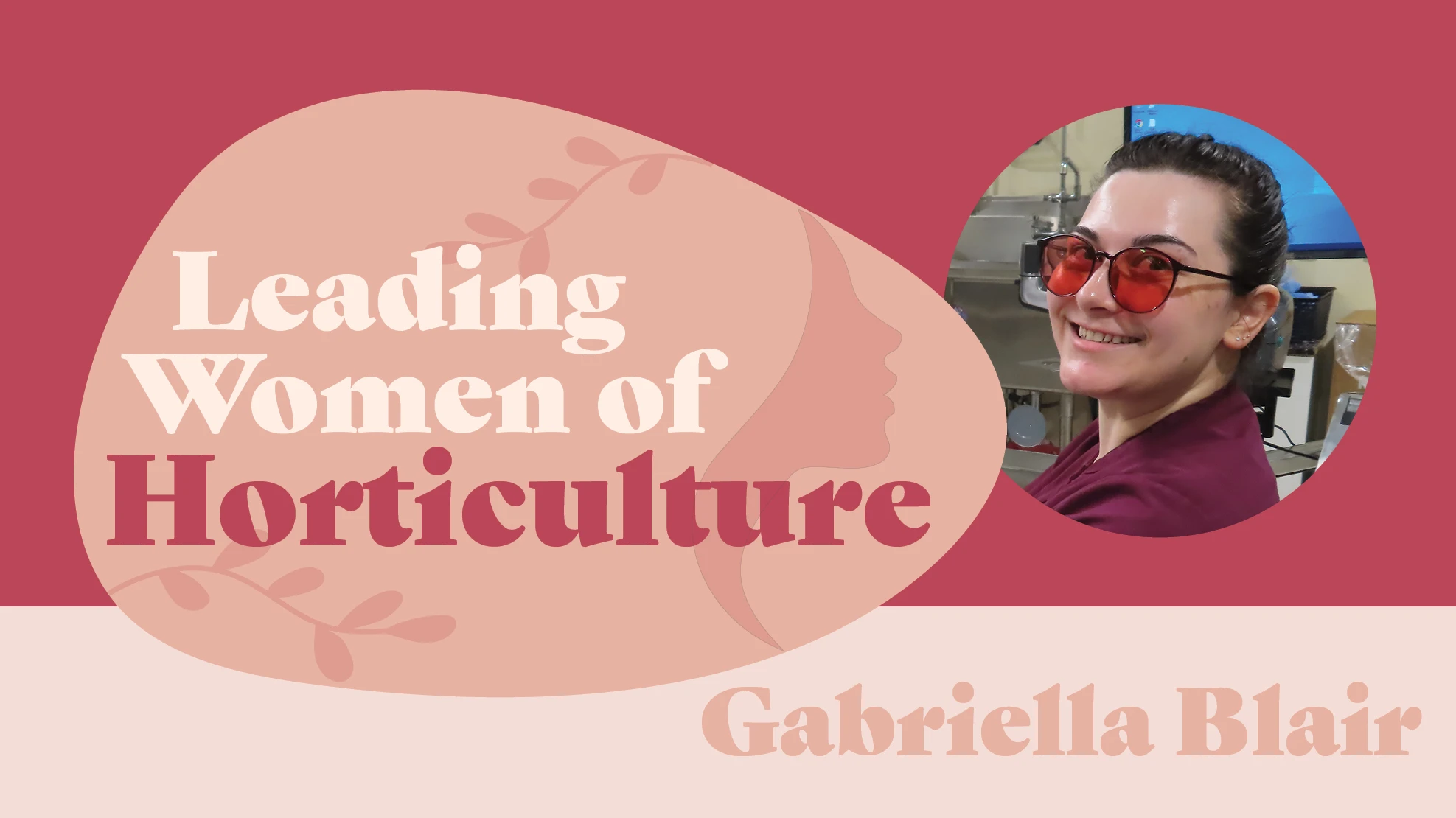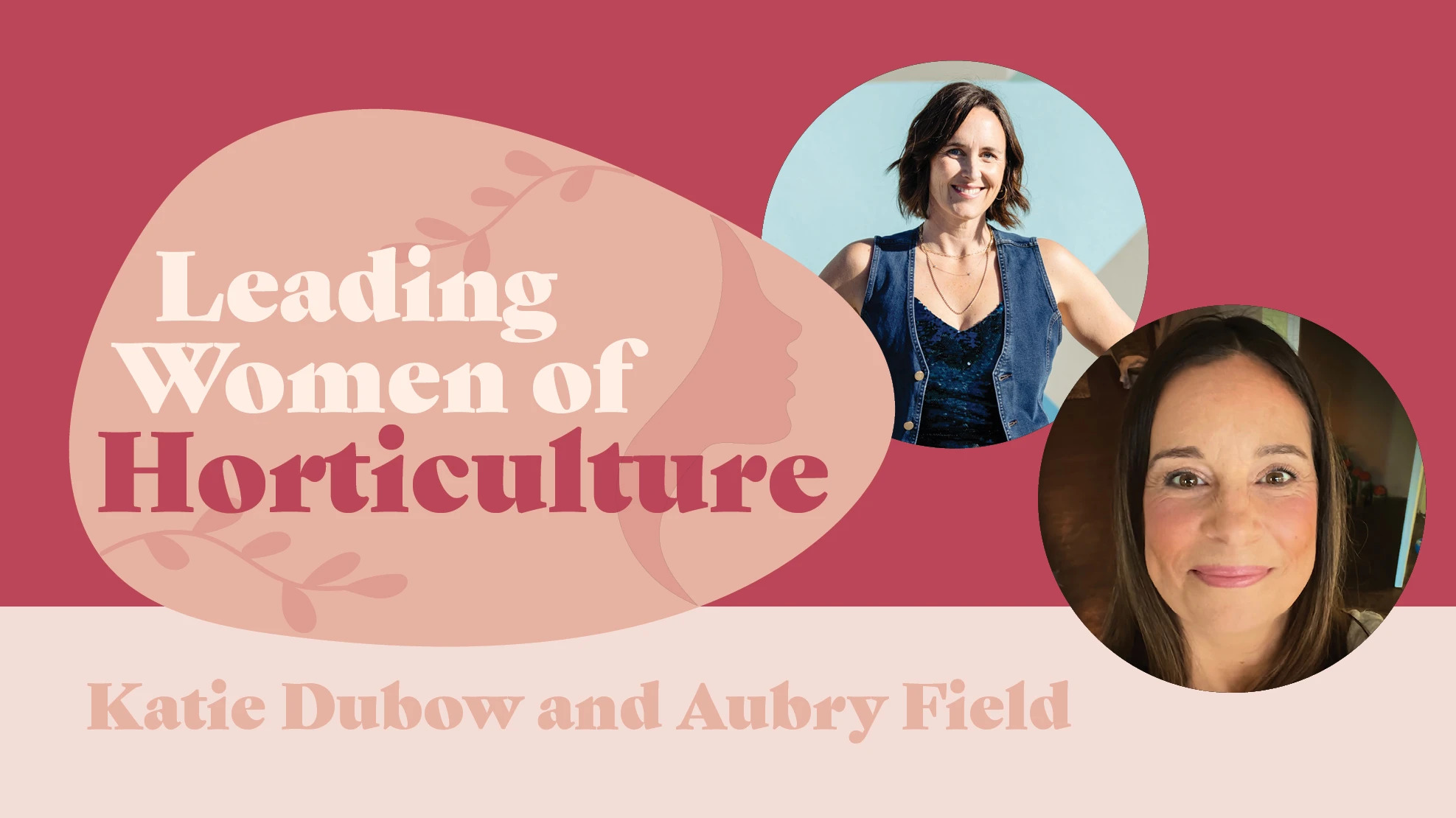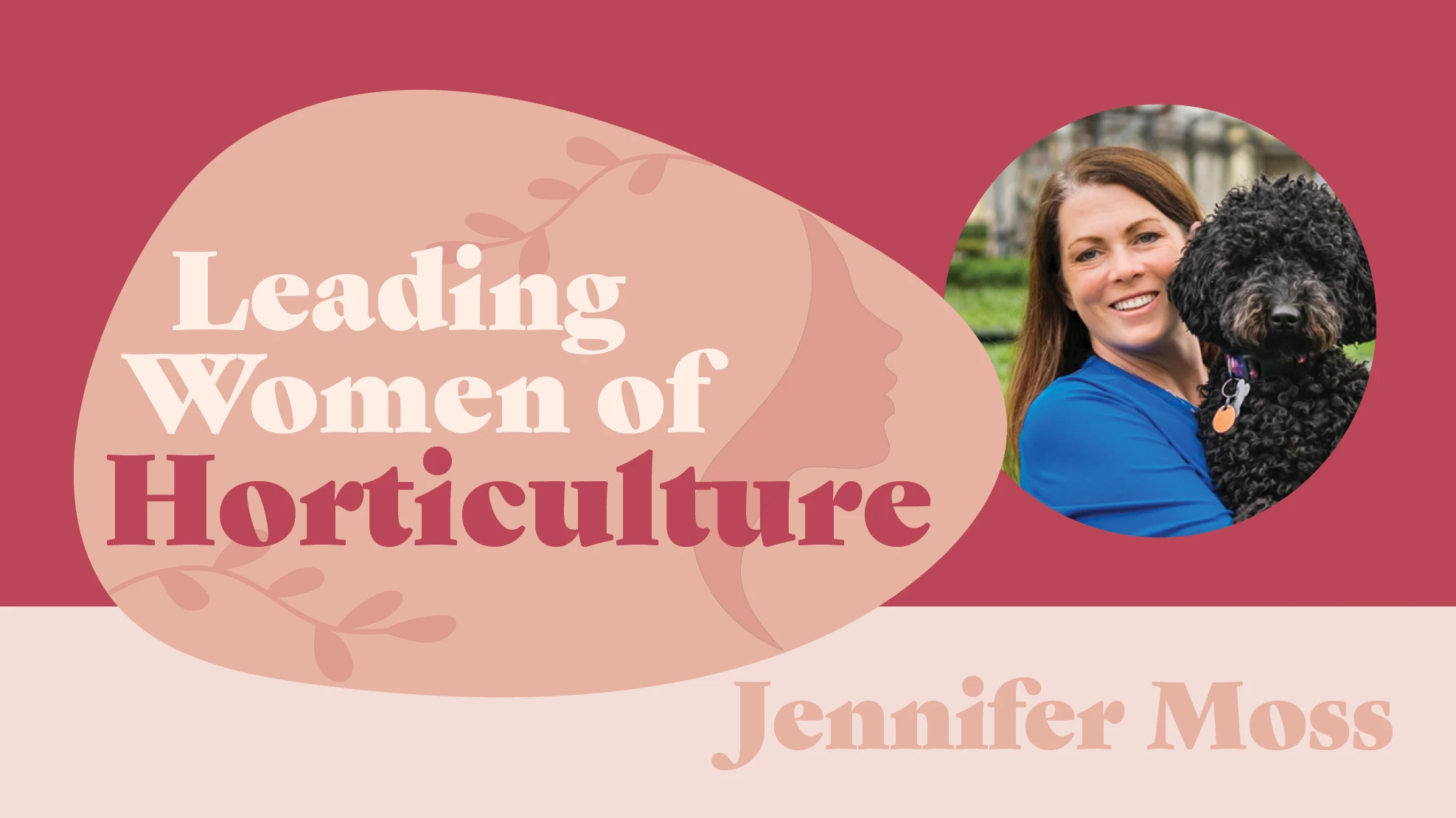

Growing a business, side by side
Wife-and-husband team Alice Longfellow and Bob Call took lessons from the businesses their parents established but built their own garden center from the ground up.
By Michelle Simakis
Editor’s note: Though family-owned companies are not unusual, working with loved ones presents different challenges as well as advantages. We spoke with Call and Longfellow, and two other husband-and-wife teams who own garden centers, to find out what it’s like working together as spouses in this industry.
Alice Longfellow always knew she wanted to follow in her family’s footsteps by working in the industry she grew up in. But unlike many second-generation garden center owners who take the reins from their parents and work alongside their siblings, she wanted to run her own company separate from the one her father and mother started.
“My brother Scott is the one who owns the family business now. He is four years older, so it was logical. He was ready to move into that position before I was,” Longfellow says, adding that their four other siblings do not work in the industry. “My parents knew Scott was going to take over, so as a result, they were very supportive of me [owning my own business].”
Longfellow and her brother don’t compete, and they’ll swap ideas and even share numbers because the company her parents founded, Longfellow’s Greenhouses, in Manchester, Maine, is a 24-hour drive from the one she operates, Longfellow’s Garden Center, in Centertown, Mo.
“My brother and I are really best friends, and will help each other in any way we can,” Longfellow says.
What Longfellow didn’t plan on was falling in love with a man who also grew up in the horticulture industry.

A professional, personal partnership
Longfellow met the man who would eventually be her husband and business partner, Bob Call, at a bedding plants conference in Michigan.
“We actually met on the tour part of the conference,” says Longfellow, who attended the event with her father, Lawrence. “We happened to be on the same bus, and we just started a conversation at one of the stops, and then ended up sitting together at the meal that night. We kept running into each other at the various classes, and at the end of the four days, I just knew something was going to happen. Even though we were 1,500 miles apart — he’s from Missouri, and I’m from Maine — I knew right away.”
They dated long distance for a while and would visit each other when they could. Before cell phones and social media, they showed their affection by sending letters and even cookies through the mail. Call likes to say he knew they would eventually get married after she made him a lobster dinner during one particular trip; Longfellow says she knew that first weekend they met. “But aren’t women more intuitive on things like that, anyway?” she says.
Like Longfellow, Call didn’t want to take over the business his parents started, D & R Plants (after Dorothy and Richard Call,) though he was a partner with his dad before Richard retired. But he didn’t want to pursue a separate business, either. After his dad sold the California, Mo.-based company, Call continued to work with the new owner of D & R Plants, while supporting Longfellow’s dream of owning her own company.
“He had his reservations [about owning a business], but he could see my passion for it, and he knew that I really wanted to do this,” Longfellow says. “And, of course, he had to have his signature on the loan and had to be an owner.”
In 1987, Longfellow achieved her goal of owning her own store, and founded Longfellow’s Garden Center at 28 years old. Five years later, Call officially joined the business as operations manager.
“That’s one of the problems we’ve had — he has never been as anxious to [own a business] as I have,” Longfellow says. “But he has been a tremendous support. Being 10 years older, he had more experiences in life and different experiences in life, and I would look to him for advice. Even though it wasn’t his passion, he still did it and did a good job at it.”
An evolving company, a changing industry
Longfellow had a vision for her company, where she would connect the dots for customers — not just selling plants and products, but helping them create complete landscapes.
“When I started my own business, I really enjoyed landscape design and helping people solve problems, not just on the bedding end, but on the whole home landscape, and we really have accomplished that,” says Longfellow, who has a degree in plant and earth sciences. “That is what we are known for in our area: residential landscape design, and everything that goes along with it.”
Longfellow is the face of the company that carries her name. She hosts a gardening program on the local radio station. On the garden center’s website, there is a page called “Ask Alice,” where customers can browse common gardening questions or submit their own. When she answers the phone, customers get excited that they are talking to the Alice Longfellow. But Call is very much a part of the business; like 90 percent of independent garden centers, Longfellow’s is family-owned.
Like many family-owned companies, Longfellow and Call each assumed a role based on interests, skills and passions. Longfellow used to manage the landscaping side of the business, while Call has always managed greenhouse and nursery operations. Longfellow now oversees retail operations, marketing and public relations, but the changing retail market also demanded new roles for the couple.


“Business is different now than in the ’70s when our families were in business. We had to learn to use computers and all of that,” Call says. “The social media that’s out there now, I never thought we would have anything like that. It’s been a challenge for both of us.” Longfellow manages the social media accounts now, but is hoping to hire someone soon.
Growing pains also presented new hurdles. Initially, the business was only going to take on landscape supply and design, but eventually, Longfellow started managing installations, too. Though both thought bedding plants would be their bread-and-butter, trees and shrubs are the most profitable plants. The company has had to evolve with new consumer demands, Call says.
“The type of customer is different. They expect us to have 2-inch maple trees tomorrow because they want them. Everything is high speed,” Call says. Their focus on service has helped them compete with big box stores in their area. “It’s a challenge, but you know what, there are always going to be challenges, and you just have to find solutions to them.”
(View the slideshow below.)
Managing relationships
Customers can be demanding, but finding, and retaining, employees has posed the greatest difficulty for both Longfellow and Call, who are not immune to the industry-wide hiring and labor struggle.
“For me, my greatest challenge has been understanding employees and their needs and how to train them and get them to do their job, and me to be able to step back and let them do their jobs,” Longfellow says. “It has taken me 30 years to figure out how to do that. I finally turned a corner and made some progress. I had a very good consultant and worked with him with six years, and he helped me back off.”
For Call, he has had to balance creating a warm, family atmosphere for staff with being a manager.
“I get too close to my employees, and sometimes that can be a problem,” Call says. “When we have fallouts, I find it’s hard to discipline them or point things out or get to the point of having to let them go because I’ve become too friendly with them.”

One of the biggest lessons Longfellow and Call had to learn was how to manage their own relationship and keep work life separate from their home life.
“Never show divisiveness in front of employees or pit one against the other,” Call says. “We’ve had that happen. So stand a united front on things, and save those discussions for private. We had to establish ground rules.”
“Things like, we will not talk about work at such and such time,” Longfellow adds. “We did bring it home a lot, and our kids, that will be the first thing they say. We finally got a little bit smarter about that. Lay down ground rules, like that you will take these days off during the week. Or you will not work past this time. Or, no matter what, you will not take on that person’s job.”
Reviewing those rules is just as important as establishing them. In 2016, after finally tracking her hours, Longfellow realized that she worked 3,100 hours that year, which included eight, 80-hour weeks in a row in spring. That was too much, Longfellow says, especially at 58 years old.
For the most part, working together as husband and wife provided more benefits than challenges, though.
“At the end of the day, the decision is really Alice’s decision, and I recognized that I needed to back down because at the end of the day, she was the boss,” Call says.
Longfellow chimed in.
“But through the years, I did learn that I need to listen to him and get his input because he has very good ideas as well,” she says.
(View the slideshow below.)
As much as you try to establish boundaries between work and home life, any IGC owner will tell you it’s tough to separate the two, especially when both spouses are involved and leading the business. But that’s not always a bad thing.
“We feed off each other very well, so if Alice is having a bad day, I’m having an especially good one,” Call says. “We sense when we need to support the other one a little extra. We don’t get home at night, and she’s coming from a different job, and I find out she’s had a crummy day. I’ve known about it since 9 o’clock in the morning.”
Longfellow says Call has always been her biggest support system, and she appreciates his calm, steady nature. They have complete trust in each other, which makes running a business easy and fun.
“I love being around Bob. I love his personality, I love sharing things with him. He’s my best friend, so therefore working together, I get to spend time with my best friend,” she says. “We both have our different areas at the garden center, and we just love getting caught up with what happened that day.”
Two of a kind
The owners of Northern Pines Greenery combine their strengths to share leadership responsibilities.
By Conner Howard
The professional and married lives of Christine Stenli and her husband Alec are closely connected. Their business, Northern Pines Greenery — a retailer with locations in Minocqua and Hazelhurst, Wis. — was founded in April, 2000, only two weeks after they were married.
Since launching their business venture together, the Stenlis have relied on each other to carve out a market for their garden center, each contributing their own interests and knowledge in pursuit of success. We asked Christine how she and Alec manage to balance the personal and business facets of their life together.
Garden Center: Does Northern Pines Greenery have any specialties or unique features you’d like to mention?

Alec Stenli: Since we live in far northern Wisconsin, we are one of the only year-round garden centers in the area. We have many product lines for all four seasons, like grilling supplies from Weber and Primo, trees, shrubs, perennials, fruits, annuals, veggies and hanging baskets, etc. [We’re a] Belgard hardscapes dealer, outdoor power equipment dealer for Husqvarna, Ariens, Hustler Turf, Cub Cadet, Generac, and Scag, full-service center for all small engines, natural stone supplier, cultured and thin veneer dealer, [we sell] water garden supplies, outdoor furniture, gifts, fertilizers, and much more.
GC: How did you two meet?
Christine Stenli: We met in the fall of 1996 while attending college at the University of Wisconsin-River Falls. Alec had transferred up to UW-River Falls and was a junior, and I was starting my sophomore year. We had a lot of classes together while we were going for our degrees in horticulture. We started dating in the fall of 1997.

GC: Do you have kids, and if so, are they involved in the business?
CS: We are expecting our first child, a son, in April 2018. It has always been our dream to someday turn the business over to our child. While we would love for our son to take over the business, we are going to let him make his own decision when the time comes.
GC: What is it like working together as husband and wife?
CS: We love working together and we get along really well. We play off of each other so that when a customer comes in looking for something that isn’t in one of our wheelhouses, we can go to the other and say, “I have this customer looking for something I don’t have a lot of knowledge on. Can you help them out?” It really takes a special kind of couple who can work together.
GC: When you first decided to open this business, did you share the same vision for what it would be, or did you have different opinions on how you wanted to approach it?
AS: We did share the same vision for what our garden center would be. We have worked really hard over the years to bring Northern Pines Greenery, Inc. to where it is today. We have added onto the original store and changed the interior and exterior in stages over the last 17 years with a new addition to the store to happen in early 2018.

GC: How do you split up the workload and leadership roles?
CS: We split up the roles to play on our strengths. Alec has more of the business and landscaping background, so he takes care of all of the outdoor power equipment, natural stone and Belgard hardscape products. We also work with more than a hundred landscape and ground maintenance contractors, so he works with them to make sure they have everything they need for their projects. I have more of the retail background, so I take care of the plant materials and all of the garden center and gift related items and doing the books.
GC: What have been your greatest challenges?
AS: Our greatest challenges have been employees and finding product lines for the winter months. Our area is a big tourist area, where we go from about 10,000 people during the winter to over 100,000 people during the summer. So, finding a product line to generate sales in the winter had been a challenge until we brought on the outdoor power equipment lines and added the small engine service center in 2014. Snow throwers and chainsaws are big in our area during the winter months, as we can get some big snowfalls and there are forest areas that get harvested for lumber that are only accessible in the winter months.
GC: What separate interests and skills do you bring to the table?
CS: Alec’s background in business and landscaping has helped our business grow over the years. He also loves being outdoors and working alongside our employees. I love the plant materials and the gifts and have been able to grow that over the years.
GC: More than 90 percent of independent garden centers are family-owned. What advice do you have for other husband/wife leadership teams for successfully working together?
CS: Treat each other with respect. Just like a marriage, there are good days and bad days in business. You have to know that business is business and personal is personal and not confuse the two, otherwise problems can arise that may affect either one of those relationships.
GC: How do you separate home and work life?
AS: We do try and take some time for just ourselves but it is hard at times. We are so involved in our business that there are times we take work home with us because there just isn’t enough time at work to get it done. The nice thing is that we live about 40 minutes from our business, so we have time to de-stress on our way home. So, when we get home, the problems of the day, if any, have been taken care of before we get there. Then we can just focus on relaxing at home with each other and our three dogs who come to work with us.

GC: What’s the best part about working with your partner?
CS: The best part of working with each other is that we know that we are not in it alone. If I have a problem that I can’t figure out how to handle or make work, I know that I can go to Alec, and he will give me his opinion on how to solve the problem. Alec does the same for me if he has something he’s been working on and it seems like it isn’t working the way he wanted it to. We are always bouncing ideas off of each other.
‘My Support System’
Ed and Margy Kopec founded Edward’s Landscaping Service Inc. in 1978, and got married the following year. The couple reflects on their nearly 40-year professional and personal partnership.
By Michelle Simakis

Garden Center: You opened your business, what is now known as Edward's Garden Center, in 1978, and got married a year later. Did you both want to own your own business? Did you have the same vision for what that company would be?
Ed Kopec: I went to a community college for two years, and I had a little grass cutting business. The first truck I purchased cost $250, and I paid my way through school. Then I went in a partnership with a fellow, and he’s still in business today. That partnership lasted three-and-a-half years. We split the partnership up in 1978, and that’s when I went on my own. It was tough because back then, the interest rates were about 19 percent. So, to start a new business was not easy, and Margy was just getting out of college, but we made it work.
Margy Kopec: I never really expected that my life would take a turn that way. I went to college to get an accounting degree, but I never dreamed that someday I would end up owning a business with my husband. It was never in my realm of thought. But once we started dating and kind of knew that things were heading in that direction, I knew I’d someday be part of the business. It’s a lot of hard work, and we made sacrifices along the way, but it’s all worked out.
GC: What separate interests and skills do you bring to the table?
MK: Finding more things to involve children. That is the route to go, as they are our younger generation, and hopefully that will get them more interested in the Earth and all things garden.
EK: My passion is just the industry, really. I’ve always had an interest in it. I love being creative. Our garden center is more different than any garden center that I’ve ever visited. We reinvest heavily into the garden center and pick new projects each year. We built a concession stand this year. Last week, we just got done putting a sound system in. We’re always doing something different and neat, and I love the creative side of it.
GC: What specific roles do you have at the garden center?
MK: I do tours with groups of children from different schools in the area, day cares, summer camps, and that’s been very successful. We have 10 animal stations here, and at each animal station, we have popsicle sticks. They’re numbered 1 through 10. I talk a bit about the animals, [explaining] what the animals eat and where they go in the winter. One of our employees who is in charge of animals will be with me at the time, and she will bring them out for children to see and pet. At each stop, children will collect a stick that they count along the way, and at the end we provide all of the children with a goodie bag. We didn’t charge when we started doing the tours, and then two years ago we decided, just to cover our costs a little bit, that we would charge a nominal fee.
We try to make it about the kids at our garden center, and that’s worked out very well for us. We have customers who come in with their children repeatedly just because the kids love to come. In the school groups we’ve had through, some of them have [included] children who are underprivileged. I always ask, “How many of you have been here before?” Our findings have been that a lot of kids maybe don’t get the opportunity to come to a garden center with their families, so they really enjoy the time they spend here.
GC: What about you, Ed?
EK: I love what I do. I have had the good fortune of surrounding myself with an incredibly talented team. They are dedicated to making Edward’s Garden Center a true destination.
GC: More than 90 percent of independent garden centers are family-owned. What advice do you have for other husband-wife teams for successfully working together?
EK: We’ve got a great relationship. I never bring problems home. I leave them at work. We share stories about the business but really only positive things. We leave the negatives out. If I have a lousy day, I want to forget about it, so I throw it over my shoulder, and that’s the end of it. That’s been beneficial.
MK: I think being a support system for one another. Just being there for each other. We’ve always gotten along very well otherwise and carried it through the business, as well.
GC: How do you separate home and work life?
EK: We never missed any of our children’s school activities, never missed their sporting events. I would just work that into my schedule. Maybe I’d have to go back later at night to catch up on what I missed during the day. And I am always home for dinner.
MK: We always made time for family. That’s really most important. Everything else comes second. But that has seemed to work out best for us.
EK:The business revolved around the family.

GC: What have been your greatest challenges?
EK: In 2007, Margy and I decided to expand both the garden center and the landscaping business, and I brought a consultant in for about seven months with the plan of taking the business to the next level. We invested about a quarter of a million dollars in both the garden center and the landscaping business, buying equipment. Timing was bad because the economy crashed. It was tough. But we just sold some trucks off, our estimators ended up leaving for one reason or another, and I basically scaled back because of the way things were. When I scaled back, I liked it. The garden center was growing, the wholesale business was growing, and getting up in age, it was more comfortable being a little bit smaller in size. When I scaled back to six or seven employees on the landscaping business, I was able to cherry pick the work that we were doing and take better jobs, and that’s been very beneficial.
GC: How has your company evolved?
EK: I went on my own [in 1978] and started just the landscaping maintenance side of the business. Margy and I purchased a property in 1983, which has terrific highway exposure, and people would drive in to our site and want to buy trees and plants that I had set aside for landscapes. I said, “I have to be crazy. It’s a lot easier to put the shrub in the back of their car and get paid and have them drive away.” So that’s when the idea for a garden center came to mind. In 1993/1994, when we opened the garden center, our name changed to Edward’s Garden Center (DBA), but we’re still Edward’s Landscaping Service.
On the wholesale side, we mostly sold contractors aggregates and mulch. There was a wholesale seed supplier that was a half mile from us. All landscapers bought seed and fertilizer from them and topsoil/mulch from us. About four years ago, that business went out of business, and we saw an opportunity, so we built a warehouse. And everything they used to sell to contractors, we now sell to them. It’s an excellent business, and it really complements the garden center. We might have a slower day at the garden center and a terrific day wholesale, and vice versa.

GC: What’s been the most successful recent initiative for you?
EK: About four years ago, we started a program called “We plan, You plant.” We noticed that when people would come into the garden center, they were just puzzled by the amount of plants and trees and didn’t know where to start — that kind of spurred this on. A homeowner will bring in pictures of an area that they want to have landscaped as well as a very rough measurement, and we walk them through the garden center to get a feel for what their tastes are, and then we draw a design up. If they spend $500 or more on retail plant material, we deliver the plants and set them up exactly the way they should be to be planted. This year to date, we did $108,000 in the We Plan, You Plant service. In 2016, we did $60,000.

GC: What’s the best part about working with your partner?
EK: Margy has been my rock. She’s my support system.
MK: Over the years, I have learned to trust Ed with all of his business decisions. Everything he’s ever done, he’s always put a lot of thought into things before actually jumping on the ideas. Of the two of us, I’m certainly more cautious and conservative, and he always wants to go ahead with the ideas. Maybe I’m a little bit more grounded, but at the same time, I’m willing to take chances because I know we’ve never been steered wrong. Ed’s got a good business head.
EK: I think it’s balance. We balance each other out.
MK: I’d say we complement each other.

Explore the December 2017 Issue
Check out more from this issue and find your next story to read.
Latest from Garden Center
- Brand Spotlight: Growing Sweet Success in Small Spaces with Butterfly Candy™ Buddleia
- Super Charged Moon Juice from Moon Valley Nurseries now available nationally
- 2025 Proven Winners Horticulture Scholarship applications now open
- Leading Women of Horticulture: Anna Ball, Ball Hort, and Terri McEnaney, Bailey Nurseries
- Dümmen Orange North America celebrating 25th anniversary in 2025
- Illinois Landscape Contractors Association changes name to Landscape Illinois
- Leading Women of Horticulture: Arden Pontasch, North Creek Nurseries
- Spring Meadow Nursery's Freedom Shelley finds joy in plants















